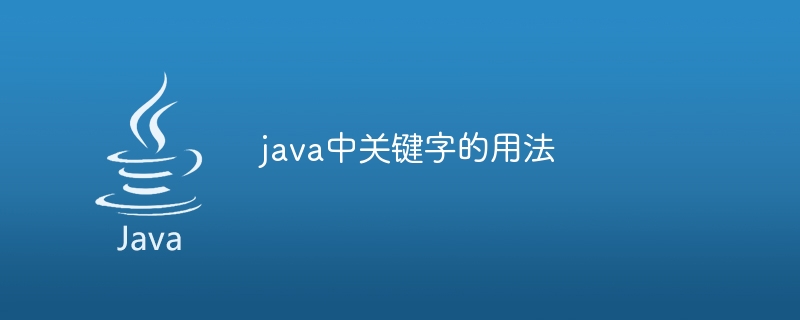
The keyword is a reserved identifier of Java with a specific meaning and cannot be used as other names. There are 53 keywords in total, divided into data types, modifiers, control flow, exception handling, and other categories. They are used to define data types, control program flow, handle exceptions, and define classes and interfaces. For example, "int" defines a data type, "public" controls access permissions, "if" controls program flow, "try-catch" handles exceptions, and "class" defines a class.

Usage of keywords in Java
What are keywords?
Keywords are pre-reserved identifiers in the Java programming language that have specific meanings and uses. They cannot be used as names of variables, methods, or classes.
Types of keywords
The Java language has 53 keywords, which are divided into the following categories:
Use of keywords
Keywords have the following uses in Java code:
Examples
Here are some examples of keywords in Java code:
Data Type:
<code class="java">int age = 25;</code>
Modifier:
<code class="java">public class Person {
private String name;
}</code>Control flow:
<code class="java">if (age > 18) {
System.out.println("Adult");
}</code>Exception handling:
<code class="java">try {
int result = 10 / 0;
} catch (ArithmeticException e) {
System.out.println("Division by zero");
}</code>Others:
<code class="java">class Car extends Vehicle {
// Custom class logic
}</code>Note:
The above is the detailed content of Usage of keywords in java. For more information, please follow other related articles on the PHP Chinese website!




